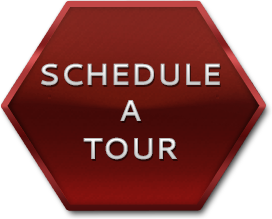Your digital assets are the lifeblood of your business. Yet the amount of digital information coming in and being utilized can be both a blessing and a curse: a blessing in that it is typically a sign your company is growing, a curse because there is usually capital expense involved. The more data your company needs to manage, the more equipment, the more space, the more cooling, the more… well, you get the picture. Where does it end?
COLOCATION - Scalable, reliable, secure and accessible!
As you search for a data center colocation provider, you will soon find that not all data centers are created equal. In order to guarantee you are getting exactly what you need there are some important questions you need to ask.
1. Redundancy – How much redundancy does the data center provide?
If N is the number of critical infrastructure components required to provide power and cooling to a data center, N+1 is simply one extra component for each system which includes power sources, generators, UPS and HVAC systems. A true N+1 environment is considered “concurrently maintainable” which means there is no scheduled down-time for critical infrastructure. A 2N infrastructure may be desirable for the extra cautious user as this is a complete duplication of all critical systems.
2. Power Billing – Does the colocation facility offer metered power or flat-rate billing?
If you are looking to reduce costs one of the biggest ways to accomplish this is by finding a colocation facility that offers metered power. Almost all colocation providers charge between 100% and 150% of the power available to an end user, even though users rarely consume all of their available power. The difference between what you use and what you are being charged goes directly into the pocket of the colocation provider. With metered power billing, a monthly invoice is issued based on the exact consumption of power and cooling, just like at your house. Additionally, a metered power billing model enables users to grow into their physical space and power capacity as needed without incurring extra cost.
3. Network Connectivity – What is carrier neutral and do I need this?
A carrier neutral data center is one which welcomes multiple carriers into a facility. This is important because some carrier specific data centers may limit or impeded a company’s ability to connect with other providers at that location. Also, in the ever changing world of telecommunications, it is important to understand the value of having choices, from both a customer service and financial perspective. Cross connect fees may vary vastly from data center to data center so also be sure to investigate what charges may be associated with connecting telecom circuits.
4. Security – What security measures are in place to ensure my IT infrastructure is safe?
Some considerations for equipment safety include 24×7 on-site guards, extensive surveillance camera systems, biometric access systems, anti-tailgating mantraps, perimeter fencing and loading and staging areas separated from the rest of the facility.
Also, the location of the facility and its surroundings, as well as regionally specific construction attributes like high wind rated roofing, seismic considerations, reinforced walls and no windows, are important considerations before choosing a data center site.
Additionally, the SSAE16 Type II audit is an in-depth, independent report to authenticate that a data center is following the required rules and procedures and is often a sought after consideration for users with audit requirements such as HIPAA or PCI.
5. Power Density – How much power can I get in each cabinet?
As processing power and data storage capacity increases you will find that you need to install more power to each rack than in the past. IT systems keep shrinking and getting more powerful at the same time. A data center that offers a variety of power configurations will enable your company to embrace technology changes as your business grows.
6. Cooling – Does the data center support high density computing?
The increase in processing power in today’s IT equipment means more heat is getting generated than ever before in the data center environment. To address changing demands successfully, a data center provider would need to have an understanding of the latest airflow delivery and management processes.
7. Remote Hands Services – Does the data center offer remote hands services?
Sometimes you need help with physically accessing your IT equipment – rebooting servers, swapping tapes, moving cables. Or simply troubleshooting issues, knowing there is someone on-site who can help is important.
IT professionals want to know the critical IT infrastructure is safe and secure. Just a little peace of mind can sometimes be the ultimate difference in this very high stress industry. Completely trusting your colocation provider is essential to being able to maintain critical IT infrastructure and ensure it is always ready and able when needed.
DataSite offers secure world-class facilities in Atlanta, Boise and Orlando, capable of accommodating varying needs in wholesale data center space. DataSite data centers are a unique blend of purpose-built, specially constructed data center facilities and expertly managed data center infrastructure designed to offer affordable colocation options that meet the demanding power density and up-time requirements of the modern computing environment. DataSite’s Tier III data center design provides completely redundant and continually operating facilities that are concurrently maintainable with zero scheduled downtime. If you would like to learn more about our colocation facilities please call 877-374-2656.


